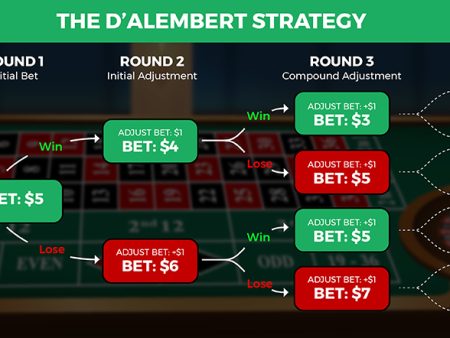
Earning money from sports betting can be thrilling and profitable. However, the responsibility of paying taxes on those earnings is a necessary, albeit less exciting, part of the process.
Tax Obligations for Sports Betting Winnings
Winnings from sports betting are considered taxable income by the Internal Revenue Service (IRS) and must be declared annually. It is your duty to maintain records of your betting gains and losses and to accurately report these figures on your yearly tax return.
This article explores various tax questions related to sports betting. For any specific inquiries or to navigate complex issues, it’s advisable to consult with a qualified accountant, tax specialist, or financial advisor to avoid potential mistakes and penalties.
Is Sports Betting Taxable Income?
Indeed, all forms of gambling income, including sports betting, are taxable. This encompasses winnings from poker, casino games, pari-mutuel betting, keno, and the lottery.
Certain winnings in gambling prompt automatic notifications to the IRS. In sports betting, receiving a W-2G form occurs if your winnings are $600 or more, with a payout at least 300 times your wager. Both you and the IRS get a copy of this form.
It is irrelevant whether your sports betting earnings were obtained through an online sportsbook, a physical venue, or from specific bets like parlays or futures. Even unwithdrawn winnings credited to your online account are deemed taxable.
Moreover, if you receive non-cash prizes from a sports betting tournament, you must report their fair market value to the IRS.
Tax Rates on Sports Betting Winnings
You should anticipate paying around 24% in federal taxes on your gambling winnings. Additionally, state taxes may apply depending on your residence.
At times, federal tax may be automatically deducted from your winnings if they meet certain criteria. For instance, sportsbooks typically withhold 24% of net winnings exceeding $5,000 from a wager with 300-1 or higher odds. Note, this 24% is preliminary, and the actual amount owed might differ based on your federal tax bracket.
Remember, it’s crucial to report all gambling winnings on your tax return, whether or not they are substantial enough to warrant a W-2G form, as per IRS rules.
Reporting Your Winnings on Form 1040
Gambling winnings are not listed on a specific line of Form 1040. Instead, report your total sports betting income as “other income” on Schedule 1, Line 8, which is attached to your Form 1040.
To potentially lower your tax obligation, consider paying taxes on your net winnings if you itemize deductions on your tax return. This option may allow you to deduct gambling losses (see the section on Writing Off Losses below for more details).
If you require assistance interpreting your W-2G form, the sum of your taxable winnings is shown in Box 1, with the winning date and bet type detailed in Boxes 2 and 3, respectively. If federal tax was automatically withheld from your winnings, that amount is recorded in Box 4.
The Importance of Record Keeping
Maintaining meticulous records of each gambling win and loss is crucial. The IRS recommends keeping a detailed diary of all sports betting activities, as you might need to provide proof of your wins and losses, particularly if you deduct losses on your tax return.
Your records should encompass all received W-2G forms, wagering tickets noting dates, locations, amounts won or lost, and the presence of any companions; canceled checks; and receipts from betting facilities.
For online betting, sportsbooks typically offer accessible electronic records of all bets placed. For those betting at physical sportsbooks, it’s essential to keep thorough records manually.
Writing Off Losses
Yes, sports gambling losses can be deducted, but only if you opt to itemize deductions on your federal tax return.
The Tax Cuts and Jobs Act of 2018 significantly increased the standard deduction, leading 85 to 90% of taxpayers in 2019 to choose the standard deduction, thus not qualifying to itemize and deduct gambling losses.
For those who itemize, you can only deduct losses up to the amount of your winnings. For example, if you won $5,000 but lost $8,000, your deductible loss is limited to $5,000, with the excess $3,000 not being forwardable. These losses should be recorded on Schedule A, separate from the winnings declared under “other income” on Schedule 1.
State Taxes on Gambling Winnings
The requirement to pay state taxes on gambling winnings depends on your state of residence. States like Alaska, Florida, Nevada, South Dakota, Texas, Washington, and Wyoming do not tax gambling winnings as they have no state income tax. Similarly, New Hampshire and Tennessee only tax investment income and interest, not gambling winnings.
In other states, gamblers must report winnings on their state tax forms, with tax rates varying. Some states, like Colorado, levy a flat tax of 4.63%, while California’s tax rates range from 1% for lower incomes to 13.3% for incomes over $1 million.
Filing as a Professional Gambler
Defining a professional gambler, according to a 1987 U.S. Supreme Court ruling, is someone who gambles full-time with the intention of earning a living, not just as a hobby. Such individuals are considered self-employed.
Professional gamblers report their winnings and losses on Schedule C, which allows for the deduction of related business expenses like online betting costs, travel expenses, and legal fees. However, the limitation on deducting losses only up to the amount of winnings applies here as well.
IRS Enforcement of Gambling Tax Compliance
If you received a W-2G form, the IRS is also notified of your winnings. If you didn’t receive this form but have gambling earnings, you are still required to report them. Failure to do so could lead the IRS to demand reports or levy penalties and interest, increasing your tax liability.
Consulting a Tax Professional
Given the complexities of tax regulations surrounding gambling, consulting a tax professional is advisable. This is particularly vital for those new to declaring gambling income. A tax expert can clarify IRS rules, prevent errors, and potentially save money and time.







